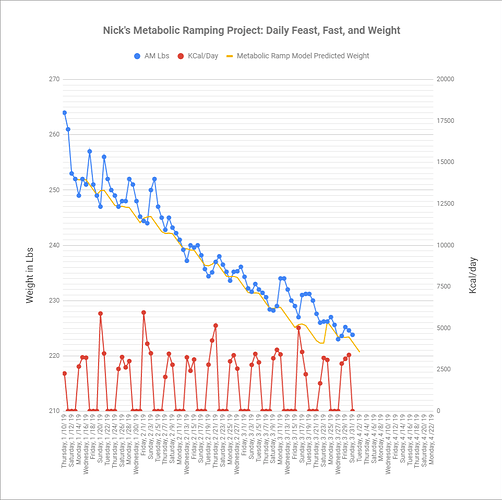For the most part, I’m all about each person doing what he or she needs to do to be successful in their life. I realize that, for some, weighing everything makes them happy. For me, I read that sentence and thought “Wow, kind of a sad way to live life.”
Again, that’s MY idea of a sad way to live life and doesn’t apply to everyone. There are people here who won’t eat at restaurants or buy pre-packaged food because then they can’t know exactly what’s in it. Granted, I don’t think anyone should eat out all the time or eat all pre-packaged foods, but that’s an extreme…so the extreme in the other direction isn’t good either. MOST people will have some kind of occasion that includes eating at a restaurant, or a friend’s house, etc. To live life having to weigh everything or needing to know exactly what’s in everything they eat, just seems kind of sad to me.
And honestly, a scale is NOT required to know if you’re over-eating or not. If your clothes start to feel a bit snug, it’s time to cut back on something. It’s not rocket science. And it’s ok to over do it one day…there’s a good chance you’ll be LESS hungry the next. And to me, that’s what keto is about…listening to your body’s signals. Extra hungry? Eat more? Not very hungry? Don’t eat.

 . I think if you listen to the podcast you will find it interesting. Not saying that it will sway you or be an attempt to. They did get into the points made by others of flaws in the experiment and such. I am not trying to call a N=1 as the best science but I did find it informative and interesting.
. I think if you listen to the podcast you will find it interesting. Not saying that it will sway you or be an attempt to. They did get into the points made by others of flaws in the experiment and such. I am not trying to call a N=1 as the best science but I did find it informative and interesting.